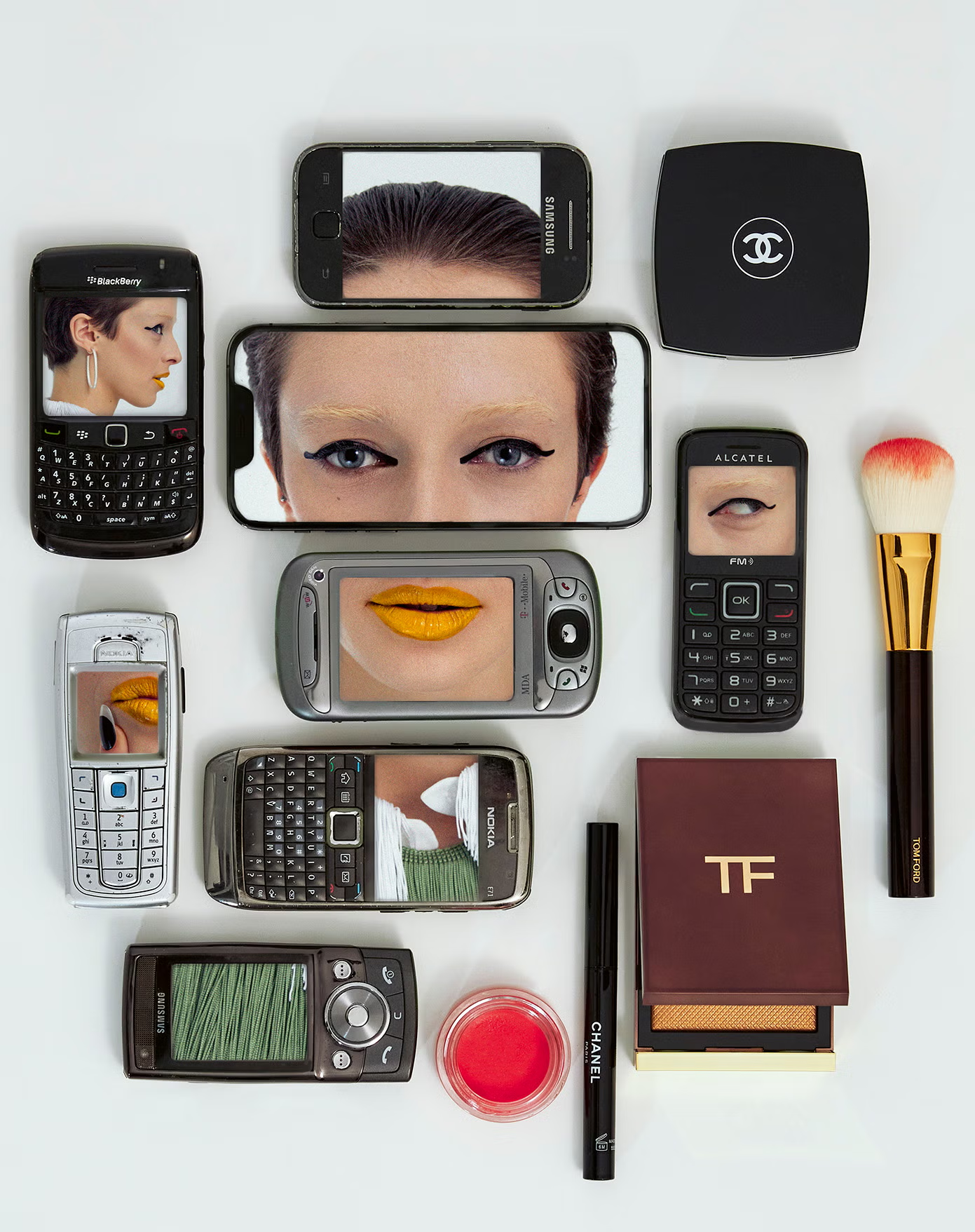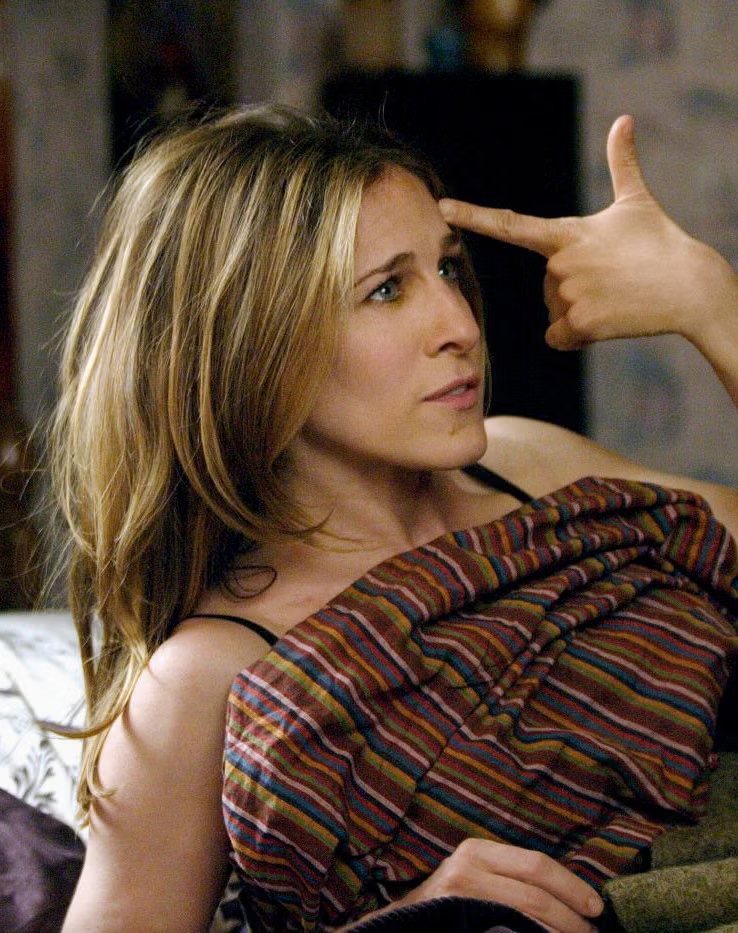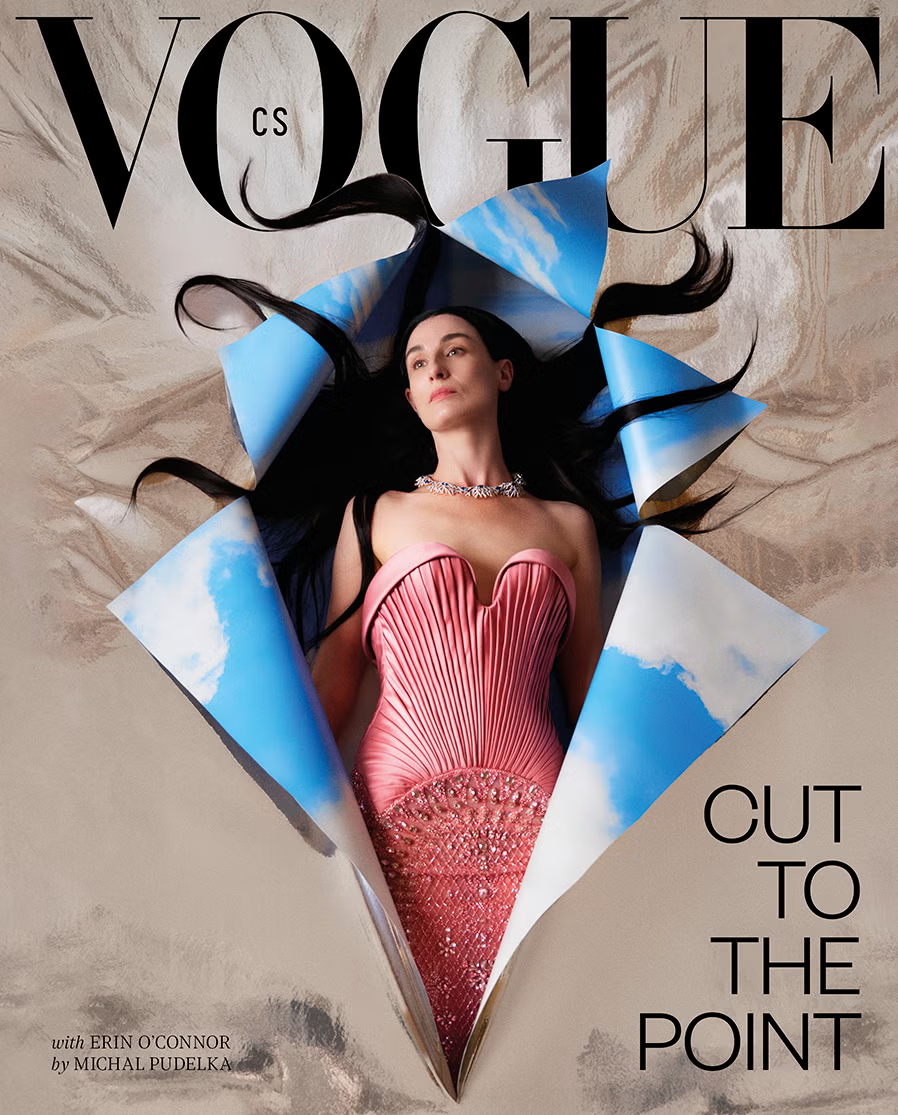Vogue CS in English
How can you be truly objective at a time when nobody believes anything anymore?
Michaela Dombrovská31. 10. 2021
Columnist Peter Pomerantsev is a propaganda expert. His focus is on where the boundary between truth and falsehood lies in today’s complicated world and the way social media distorts reality. The Czech translation of his new book is coming out right now, and in it he reveals unpleasant truths. Michaela Dombrovská interviews Peter for VOGUE CS.
Each of us perceives reality through certain filters. We are unique beings, endowed with senses and a mind. Whereas the senses function as an interface with the world, the mind assesses the information that we obtain through them. Our senses and mind, however, can play nasty tricks on us. Whether it is truly possible to know what is real is a question best left to philosophers, but we can at least peek behind the veils concealing it and learn to spot the filters that create the resulting picture.
Know Yourself
The influences contributing to how we assess everything around us can originate inside ourselves, but also in our immediate environment. The internal ones include the knowledge you hold, the conscious belief in your own truths and your opinions and tastes, but also your mood and personal disposition. Then there is the subconscious, to which we ascribe intuition, feeling, and the sixth sense. This is where prejudices hide and dreams originate. These are formed by previous experience or learned patterns of behaviour. We can, however, find and perhaps even modify this influence through painstaking introspection or therapy. Finally, there is the unconscious – shared and archetypal human experience – the source of which is difficult to explain and is something that transcends any individual person. Even though contemporary psychology does not differentiate between the subconscious and the unconscious, the terms, coined by C. G. Jung, reflect a certain spirituality that is difficult to describe using scientific terminology. Advertising, for example, targets the subconscious; artists, however, like to work with archetypes, and you can find them in children’s stories as well as on the catwalk.
Under external influences we can certainly include cultural differences, which are responsible for things occasionally being “lost in translation.” This need not be the domain of different languages: often it is difficult for us to understand each other across generations or groups with different backgrounds. Respect for cultural diversity is shown, for example, by discussions about the degree to which elements of native cultures or ethnic groups can be used in creating fashion. Family patterns – rules adopted from our immediate environment and that are sometime truly difficult to explain to someone else – are also fall under external influences. Transcending a learnt style can be truly difficult, whether we follow it or define ourselves against it. Social networks in the broadest sense belong here. Networks – as in a group of people we agree with, can follow and share our lives with – have existed since time immemorial. It has been only recently, however, with the onset of the digital world, that it has acquired a new and different meaning, and, moreover, an incredibly strong one. Virtual social networks today influence to a great extent how we think about the world and how we make decisions. Despite proof of their being harmful and addictive, we devote a lot of our time and attention to them. They have become part of our lives. They are, therefore, also the ideal breeding ground for propaganda and disinformation, which can bend and twist reality and conceal it like a heavy smoke screen.
This Is Not Propaganda
Peter Pomerantsev, whose second book has just been released by Dokořán, has for several years now been focusing on the illusions of the digital world and, in particular, propaganda on the internet. In his first book, Nothing Is True and Everything Is Possible, he discusses in particular the use of disinformation in Russia, the home country of his parents were born and from which they all emigrated in 1978 shortly after his birth. In his new book, This Is Not Propaganda, he set out to find stories in China, Syria, Serbia, Mexico and the Philippines. He interviewed people who have the power to influence the digital world as well as those whose personal lives have been affected by virtual reality, often with disastrous consequences. He describes the Russian scene again with the deep knowledge he acquired after spending almost ten years there post-university helping to produce documentaries and reality shows and working in one of the local commercial television channels, finally returning to Great Britain, where he is Visiting Senior Fellow at the London School of Economics.
In the book he shows how the line between fact and fiction are fading and how information is targeting the innermost of human emotions and needs and the human desire to share and receive recognition. He describes social networks as a machine fuelled by narcissism; nevertheless he does not advocate digital ascetism. Rather he hopes that by understanding the backdrop of staged campaigns and targeted disinformation, some readers can gain the awareness they, as users, need to use the virtual world for their benefit rather than the opposite.
A new Matrix film will soon be showing in cinemas. Are we living in a matrix woven out of propaganda and disinformation?
The Matrix is not just a film series. It’s a metaphor, and it’s interesting we’re still using it. We talk about taking the blue or the red pill. Whether to escape the illusion we believe is being created by the mainstream media. The idea that everything is propaganda is propaganda in and of itself. The makers of propaganda like to portray themselves as victims. That’s why I’d be careful using such metaphors. We all contribute to creating our own reality. But of course I saw the first film twenty years ago, and I’m looking forward to the new one.
The nature of propaganda is changing. Is this reflected in the dynamics between censorship and freedom of speech?
Authoritarian regimes in countries such as Russia have already realised that it’s no longer possible to control information through censorship, so they’ve begun to create information noise. They flood the public realm with a slew of information that is difficult to make heads or tails of. This has been the case for a least a decade. We need to update our concept of freedom of speech: not only having the freedom to disseminate information, but also having access to information that is relevant and factually correct.
In countries with experience with totalitarian regimes, are we not more capable of distinguishing what is propaganda?
We are perhaps more cynical and thus also better prepared to resist propaganda. We’ve learnt to expect it. Cynicism and scepticism are certain kinds of defence mechanisms.
Is it possible to effectively resist propaganda?
Through regulation; that is, through rules and laws. The question is how efficient and effective this is. Content is very difficult to regulate. Rather, it is necessary to have control over systems and certain types of behaviour. For example, troll farms should certainly be illegal and the operators of platforms that spread disinformation should be held responsible. Lots of campaigns exist, however, and they should be transparent. We should have the possibility of knowing who is behind them, who is financing them, what personal information is being worked with and so on, or know if we are communicating with a real person or a robot. In a democracy, we should have the right to know who is behind content that is targeting us directly. We don’t have that yet, but we are getting closer.
Can an individual recognise and resist propaganda?
Truthfully, there’s very little we can do. Critical thinking is fine, but how can we stand up critically to something we cannot recognise? It will be hard for us to critically assess an algorithm that offers us information, because we simply don’t understand it. Instead I’d recommend using common sense, by, for example, approaching social networks and the online world with discretion. We are vulnerable; we need a certain emotional shield. We need to keep distance from our phone and other devices. Of course, it’s difficult: it’s almost impossible to function without them in today’s world. The digital world targets our innermost needs and emotions; it forms a part of the infrastructure of our lives. If someone in the digital world tries, for example, to upset us or draw us into a discussion, we shouldn’t let them. It’s easier said than done, but we should try to practice something like digital Buddhism.
In your books, you also describe how easy it is in the digital word to destroy someone’s career or life.
Truly anyone can become a victim of a smear campaign or cyberbullying. Minorities or women are often targeted, especially those involved in politics. And there are only limited options for defending yourself. If a specific person attacks you, you can do something about it; but fighting a targeted campaign is really very difficult. The line between what is still legal and what is not is very fine. Perhaps we should have courts for the digital world that would be able to make the distinction. Slander is nothing new, but the platforms and tools for leading such far-reaching campaigns are.
Such courts would have to be supranational, global. Can all countries agree on a common approach?
The whole world uses the internet, but the legal systems vary, naturally. There have already been law suits filed against companies, but the decisions pertained to specific countries – then all a company need to do is change its official domicile. Supranational cooperation is definitely a problem. We can of course begin with democracies finding consensus. The EU and the USA have demonstrated that they are key. A company can be destroyed if its activities are banned in their territories. Europe, especially in the area of personal data protection, is definitely a trend setter. Big companies do not take such regulation lightly.
In your last book, you describe the stories of people who have the power to influence public opinion. What are they like?
I’ve spoken to those who deliberately manipulate public opinion, aka spin doctors. They use various platforms for this. They often refer to themselves as artists. Usually they lack any moral compass. If they did, they would not be able to do what they do. Their qualification is having no conscience. People with a conscious can, for example, do social campaigns or positive PR. But those who have fallen to the dark side see human beings as numbers, tools or a means to achieve a certain objective. In other words, to them, you are no longer a person.
Doesn’t it all begin by how we present ourselves in the digital world?
In each of us there is a little propaganda machine. We try to make ourselves look better to others. For example, Instagrammers and Youtubers know how to manipulate the way they present themselves; they are able to disengage from their own selves. They make themselves into a product. Essentially, they manipulate themselves, do theatre. The ones that do best are those who are able to emotionally disengage. Separating your true self from your digital identity is basically healthy, but exploiting and manipulating others is a line that should not be crossed.
Does objective media still exist today?
How can you be truly objective at a time when nobody believes anything anymore? When it comes to media, it would do us good to admit that we are subjective, openly subjective. Put the cards on the table; show our convictions and starting positions. Then we can have an objective debate. Our discussions should again be focused. We shouldn’t just analyse what is going on; we should also introduce topics and delve deeply into them. Keep doubting ourselves, exposing ourselves to criticism and self-criticism. That is how journalism will always differ from propaganda.
I’ve read that you believe in books. Is that the reason you write?
You’ve just amused me. I consider myself to be more a journalist than a writer. But it is true that I like to read – a lot. There exists a whole host of research and evidence that shows that reading increases resistance to disinformation. Especially people who read fiction have – in dictatorships for example – much more creative thinking because they develop their imaginations. This does not happen by reading any kind of book. You have to read good books. There is no direct link between literature and moral values, but a person’s imagination and fantasy does make one more resistant to propaganda, manipulation and oppression. Art and propaganda are similar in a way: they work with language, identity and symbols and try to influence the human spirit. But while propaganda does this to enslave person, art asks us to question, to doubt what is otherwise presented as a given. A person influenced by art questions their nature and the nature of the world around them. Being detached and aware is the best protection against propaganda. ●
Vogue etc.
Both of Peter Pomerantsev’s books have been published by Dokořán. Nothing Is True and Everything Is Possible has been translated into Czech by Martin Weiss; This Is Not Propaganda has been translated into Czech by Petruška Šustrová.
Other authors writing about disinformation and how to guard against it include Alexandra Alvarová – her new book Krmit démony (Feeding Demons) has been published by CPress – and Petr Nutil – his second book Jak neztratit rozum v nerozumné době (How Not to Lose Reason in an Unreasonable Time) has been published by Grada.
You can find out how to distinguish between truth and lies on the internet on, for example, the website of E-bezpeci.cz, which is guaranteed by Palacký University Olomouc. Media ratings and a list of disinformation platforms can be found on the website of the Endowment Fund for Independent Journalism (Nadační fond nezávislé žurnalistiky), Nfnz.cz.
The website Cesti-elfove.cz also focuses on refuting disinformation and hoaxes.
Vogue
Doporučuje

Přehlídky
Móda jako ragebait. Přehlídka Eleny Velez je cvičením z vyprázdněnosti
Jana Patočková20. 2. 2026
Společnost
Láska v době Instagramu: Jak se pojem blízkosti mění u mladé generace
Natálie Debnárová20. 2. 2026
Health
